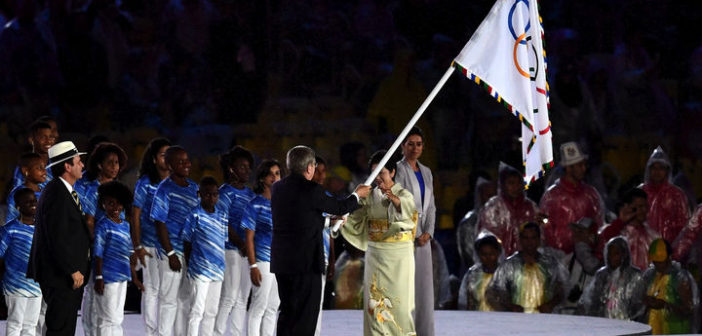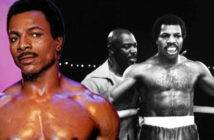The first Olympic Games to be hosted by a South American country officially ended yesterday as the Brazilian city of Rio de Janeiro say goodbye to the world after 16 days of sporting competition.
The Rio Games was preceded with so much anxiety especially that of security, inadequate preparedness and the Zika virus but Rio brave all odds to give the world an exciting and memorable Olympics. Cariocas — as Rio’s residents are known — weren’t swayed by the issues that led up to these Olympics, and braved rain and strong winds on the final night to cap their moment in the worldwide spotlight.
“These were marvelous Olympic Games in the `marvelous city,'” said International Olympic Committee President Thomas Bach, playing off the “cidade maravilhosa” nickname of Brazil’s postcard city of inviting coastlines, year-round sun and lush tropical vegetation.
Rio draws the curtain on Olympic careers of Usain Bolt, Michael Phelps and Mo Farah but it heralded that of American gymnast Simone Biles, Singapore swimmer Joseph Schooling, South Africa’s Wayde van Niekerk and many more. Rio finally brought to fruition Brazil’s long quest for an Olympic gold in football.
As expected, Nigeria gave a dismal showing before, during and – will most like after the Games. The doggedness of the football team earned us a Bronze, all thanks to Samson Siasia and the boys.
President Bach also cited what he called “iconic stories” from the Rio 2016 Games, a series of inspiring and uplifting moments reflecting Olympic values.
“We had athletes from Ukraine and Russia hugging each other and congratulating each other; we have seen athletes from North and South Korea taking selfies together,” he said. “We have seen (runners) Nikki Hamblin (of New Zealand) and Abbey D’Agostino (of the US) falling and helping each other to the finish of the race. And the quote of the American runner when she helped up her competitor, to say ‘Get up, we have to finish, this is the Olympic Games.’ I think you cannot better describe Olympic spirit and fair play than with this gesture and these words.”
The IOC President, who won a gold medal in fencing at the 1976 Montreal Games and often stays in the Olympic Village in his current role, said he was pleased to see how athletes from around the world welcomed members of the Refugee Olympic Team.
“They were treated like rock stars. This is really Olympic solidarity at its best,” he said, adding that the IOC would continue to support the refugee athletes and help them integrate into their new homes after the Games.
His wrap-up assessment also included a report on global media coverage, and the impact of digital and social media. He noted that NBC, the broadcast rights holder in the US, has already reached 2.25 billion live streaming minutes — 750 million minutes more than all previous Olympic Games combined.” “Audiences are consuming more content on new platforms than ever before,” he said. “These Olympic Games are the most clicked-on and most shared Olympic Games ever.”
The closing ceremony featured original footage of Alberto Santos Dumont, the man that Brazilians recognize as the inventor of the airplane. The theme, “Brazilians can do with their bare hands,” was a nod to the emerging economy of the world’s fifth most populous nation.
Dressed in colorful feathers, dozens of dancers formed in the shape of the arches of Lapa, a popular area of Rio akin to Roman ruins, then morphed to make the shape of iconic Sugarloaf before quickly changing again, this time to the official 2016 symbol.
Samba legend Martinho da Vila, whose tunes make their way into many popular telenovelas, sang “Carinhoso,” or “Affectionate.”
The show widened its lens to greater Brazil, a massive country with a land mass slightly larger than the continental United States. There was a tribute to cave paintings of some of the first inhabitants of the Americas, in Serra da Capivara, in Northeastern Brazil, today one of the nation’s poorest regions.
Spectators watched performers shake it to frevo, a frenetic dance that — if it’s even possible — makes high-octane samba seem like a staid ballroom affair. Holding small umbrellas, dancers jumped and marched while performing acrobatics.
They shook it to “Vassourinhas,” which means “small brooms,” a popular song that was also the name of a famous club in the northeastern city of Recife.
The show also built performances around “saudade,” which means anything from longing for someone to sadness to remembering good times. It is one of the most important words in Brazilian Portuguese. Lights flashed translations for the word in many languages, and a group of women sang “Mulher Rendeira,” or “Lace-making Woman,” a nod to the country’s African heritage. Brazil was the last country in the Americas to outlaw slavery, in 1888.
IOC President, Thomas Bach Games of the XXXI Olympiad featuring 11,303 athletes from 206 nations and a refugee team closed. The ceremony featured the symbolic handover of the Olympic flag. Rio mayor Eduardo Paes returned it to IOC president Bach, before it was passed to Governor Yuriko Koike of Tokyo, the host of the next Olympic in 2020.





